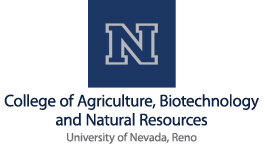Team:Nevada/Transgenic Plants
From 2010.igem.org
(→Transgenic Plants: into the Wild) |
|||
| (11 intermediate revisions not shown) | |||
| Line 25: | Line 25: | ||
Since the initial development of Agrobacterium transformation systems, many plant species including tobacco, tomato, potato, rice, soybean, mint, melon, cucumber, pine and poplar trees, and many others have been transformed using this ingenious bacterial vector. Important traits have been engineered into plants including pest and weed resistance, increased nutritional value, environmental stress tolerance, the production of pharmaceutical and industrial proteins, and the production of bioactive secondary chemical compounds. Our ability to genetically engineer plants has revolutionized agriculture by increasing crop yields while drastically decreasing the application of herbicides and pesticides. This technology is necessary to allow farmers to produce sufficient food for a growing global population. Furthermore, plants are currently being engineered to produce fuel and chemical alternatives to petroleum based products. Because plants are net consumers of atmospheric carbon dioxide, they are currently being seen as a means to sequester greenhouse gases while at the same time replacing petroleum and coal as chemical feedstocks. | Since the initial development of Agrobacterium transformation systems, many plant species including tobacco, tomato, potato, rice, soybean, mint, melon, cucumber, pine and poplar trees, and many others have been transformed using this ingenious bacterial vector. Important traits have been engineered into plants including pest and weed resistance, increased nutritional value, environmental stress tolerance, the production of pharmaceutical and industrial proteins, and the production of bioactive secondary chemical compounds. Our ability to genetically engineer plants has revolutionized agriculture by increasing crop yields while drastically decreasing the application of herbicides and pesticides. This technology is necessary to allow farmers to produce sufficient food for a growing global population. Furthermore, plants are currently being engineered to produce fuel and chemical alternatives to petroleum based products. Because plants are net consumers of atmospheric carbon dioxide, they are currently being seen as a means to sequester greenhouse gases while at the same time replacing petroleum and coal as chemical feedstocks. | ||
<br> | <br> | ||
| - | <br> | + | <br>'''Concerns Related to the Use of GMO Plants:''' |
| - | + | Although transgenic plants have made a large positive impact on modern agriculture, the use of GMO crops is still a very controversial topic. Issues related to GMOS and health, the environment, economics and ethics are of concern to many people. | |
| - | < | + | <br> |
| - | + | *'''Health Concerns''' – While the introduction of genetically engineered traits has made a huge impact on crop yields, many people are concerned about the introduction of transgenes into the human food chain. Although extensive testing of GMO crops is required by the FDA and USDA before approval for cultivation, some people still worry that GMO foods are “unnatural” and may cause health problems when consumed. Many argue that even though health issues have not yet arisen, problems may occur in the future. | |
| - | + | <br> | |
| + | *'''Environmental Concerns''' – The widespread use of GMO crops has concerned environmentalist on a number of levels. First of all, many see the use of herbicide resistant crops as being harmful to the environment because farmers will be prone to increase their use of specific herbicide to control weeds. People also worry about the possible transfer of the herbicide resistant genes to closely related weedy plant species could lead to the development of superweeds. Concerns have also arisen from the expression of insecticidal genes that may lead to the killing of not only pest insects, but also beneficial insects such as pollinators or predatory insects. | ||
| + | <br> | ||
| + | *'''Economic Concerns''' – Many object to the fact that the distribution of GMO seed is controlled by large multinational conglomerates. And that due to proprietary issues, ownership of the seed, even in later generations, remains the property of these companies. Therefore farmers can no longer save seed from one year’s harvest to plant as next year’s crop. While this has been an issue since the advent of hybrid seeds in the 1950s and 1960s, many object to these practices because they prevent small farmers from realizing the benefits of GMOs while at the same time practicing subsistence farming. | ||
| + | <br> | ||
| + | *'''Ethical Concerns''' – In regards to people’s personal beliefs, some feel that manipulating plant genomes through recombinant DNA approaches is an abomination to their god. They see this as an unnatural act that goes against the higher order of things. | ||
| + | <br>While many of these concerns have been addressed through technological developments and stringent government regulations, many people will always reject GMOs due to conflicts with basic belief systems. While it is difficult to convince such people that the benefits of GMO plants outweigh the concerns, our job as scientist is to alleviate their concerns with rational science based dialog. | ||
| + | <br> | ||
| + | <br> | ||
| + | <br> | ||
{| style="color:#FFFFFF;background-color:#FFFFFF;" cellpadding="3" cellspacing="1" border="1" bordercolor="#008000" width="100%" align="center" | {| style="color:#FFFFFF;background-color:#FFFFFF;" cellpadding="3" cellspacing="1" border="1" bordercolor="#008000" width="100%" align="center" | ||
!align="center"|[[Image:Nevada_CABNR.jpg|200px]] | !align="center"|[[Image:Nevada_CABNR.jpg|200px]] | ||
Latest revision as of 00:21, 28 October 2010
Transgenic Plants: into the Wild
Technological Advances from Genetically Engineered Plants
Since the initial development of Agrobacterium transformation systems, many plant species including tobacco, tomato, potato, rice, soybean, mint, melon, cucumber, pine and poplar trees, and many others have been transformed using this ingenious bacterial vector. Important traits have been engineered into plants including pest and weed resistance, increased nutritional value, environmental stress tolerance, the production of pharmaceutical and industrial proteins, and the production of bioactive secondary chemical compounds. Our ability to genetically engineer plants has revolutionized agriculture by increasing crop yields while drastically decreasing the application of herbicides and pesticides. This technology is necessary to allow farmers to produce sufficient food for a growing global population. Furthermore, plants are currently being engineered to produce fuel and chemical alternatives to petroleum based products. Because plants are net consumers of atmospheric carbon dioxide, they are currently being seen as a means to sequester greenhouse gases while at the same time replacing petroleum and coal as chemical feedstocks.
Concerns Related to the Use of GMO Plants:
Although transgenic plants have made a large positive impact on modern agriculture, the use of GMO crops is still a very controversial topic. Issues related to GMOS and health, the environment, economics and ethics are of concern to many people.
- Health Concerns – While the introduction of genetically engineered traits has made a huge impact on crop yields, many people are concerned about the introduction of transgenes into the human food chain. Although extensive testing of GMO crops is required by the FDA and USDA before approval for cultivation, some people still worry that GMO foods are “unnatural” and may cause health problems when consumed. Many argue that even though health issues have not yet arisen, problems may occur in the future.
- Environmental Concerns – The widespread use of GMO crops has concerned environmentalist on a number of levels. First of all, many see the use of herbicide resistant crops as being harmful to the environment because farmers will be prone to increase their use of specific herbicide to control weeds. People also worry about the possible transfer of the herbicide resistant genes to closely related weedy plant species could lead to the development of superweeds. Concerns have also arisen from the expression of insecticidal genes that may lead to the killing of not only pest insects, but also beneficial insects such as pollinators or predatory insects.
- Economic Concerns – Many object to the fact that the distribution of GMO seed is controlled by large multinational conglomerates. And that due to proprietary issues, ownership of the seed, even in later generations, remains the property of these companies. Therefore farmers can no longer save seed from one year’s harvest to plant as next year’s crop. While this has been an issue since the advent of hybrid seeds in the 1950s and 1960s, many object to these practices because they prevent small farmers from realizing the benefits of GMOs while at the same time practicing subsistence farming.
- Ethical Concerns – In regards to people’s personal beliefs, some feel that manipulating plant genomes through recombinant DNA approaches is an abomination to their god. They see this as an unnatural act that goes against the higher order of things.
While many of these concerns have been addressed through technological developments and stringent government regulations, many people will always reject GMOs due to conflicts with basic belief systems. While it is difficult to convince such people that the benefits of GMO plants outweigh the concerns, our job as scientist is to alleviate their concerns with rational science based dialog.

| 
| 
| 
| 
| 
|
|---|
 "
"
